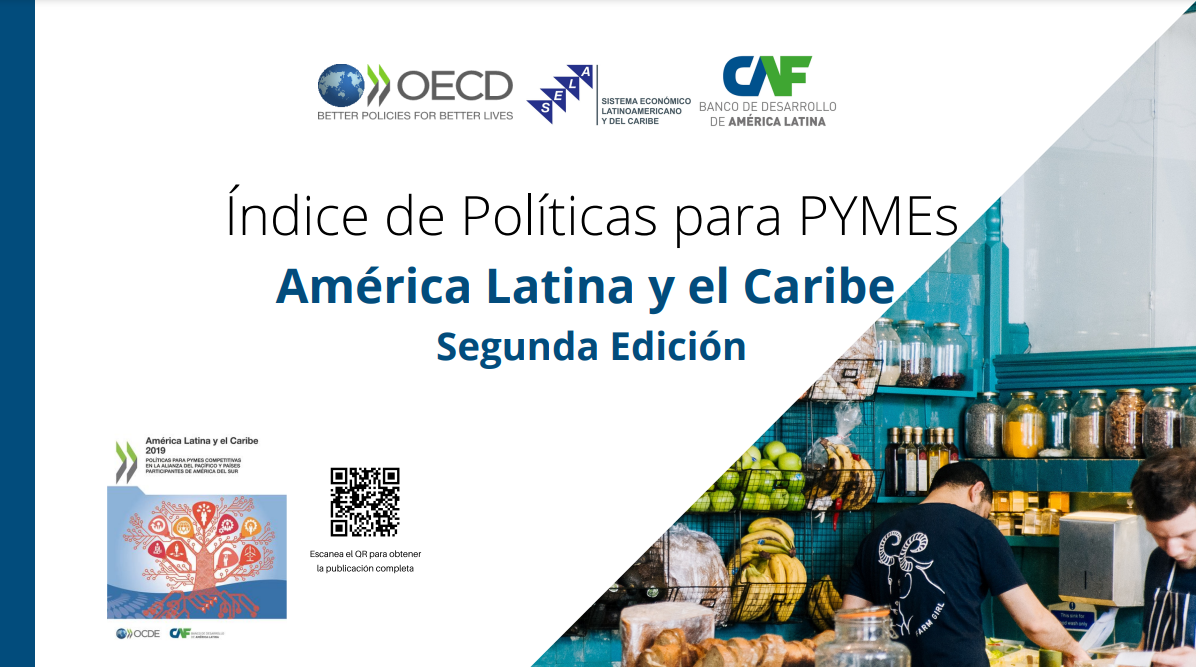¿A qué nos dedicamos?
La Dirección General de Información e Internacionalización tiene como objetivo promover y facilitar la internacionalización de las Micro, Pequeñas y Medianas empresas (MIPYMES) e impulsar los servicios de informaciones orientados a la promoción y formalización para la competitividad y el desarrollo de las MIPYMES, así como medios y procedimientos para la publicación.
Offshore Betting: Implications for Canadian Bettors
Offshore betting has become a hot topic among Canadian bettors seeking more options beyond the confines of domestic gambling regulations. With the rise of online sportsbooks and casinos based in offshore locations, Canadians are increasingly turning to these platforms for their betting needs. However, this trend raises important questions about the implications and risks associated with offshore betting for Canadian players. In this article, we will explore the key considerations that Canadian bettors should be aware of when engaging in offshore gambling activities, shedding light on the potential advantages and pitfalls of this growing phenomenon.
From navigating legal ambiguities to assessing the safety and security of offshore betting sites, Canadian bettors face a myriad of factors to weigh before placing their bets. We will delve into the regulatory landscape surrounding offshore betting in Canada, examining how it impacts both the players and the industry as a whole. Join us as we unpack the complexities of offshore betting and its implications for Canadian bettors, offering insights into the risks and rewards that come with venturing into the world of international gambling.
Legal Considerations for Offshore Betting in Canada
Offshore betting presents both opportunities and risks for Canadian bettors. While it allows access to a wider range of betting options and potentially better odds, it operates outside the regulatory framework of Canadian authorities. This lack of oversight can expose bettors to potential scams or unfair practices. It is crucial for Canadian bettors to exercise caution and conduct thorough research before engaging with offshore betting sites.
When looking for the best sports betting sites Canada, many Canadian bettors are drawn to offshore options due to the variety of sports and markets they offer. However, it is important to note that these sites may not adhere to the same standards of consumer protection and responsible gambling measures as domestic operators. This can leave bettors vulnerable to issues such as delayed payments, lack of recourse in case of disputes, and potential data security concerns.
Despite the risks, offshore betting remains popular among Canadian bettors seeking more diverse betting options. To mitigate potential drawbacks, bettors should prioritize reputable offshore platforms with a history of fair practices and positive user reviews. Additionally, staying informed about local regulations and ensuring compliance with tax obligations on offshore winnings is essential for a safe and enjoyable betting experience.
In conclusion, while offshore betting can offer Canadian bettors access to a broader range of sports betting opportunities, it is not without risks. By approaching offshore betting with caution, conducting due diligence on
best sports betting sites Canada
, and staying informed about legal implications, Canadian bettors can make more informed decisions and minimize potential negative outcomes associated with offshore wagering.Risks and Benefits of Offshore Betting Platforms
Offshore betting has become a popular option for Canadian bettors due to its accessibility and variety of betting options. While offshore betting sites offer a wide range of sports events and betting markets, there are implications that Canadian bettors should be aware of. One of the main concerns is the lack of regulatory oversight compared to domestic betting options. This lack of regulation can expose Canadian bettors to potential risks such as unfair practices, lack of consumer protection, and difficulties in resolving disputes.
Additionally, Canadian bettors using offshore betting sites may face challenges in terms of financial transactions and legal recourse in case of disputes. Deposits and withdrawals can be more complicated, with potential issues related to currency exchange rates and transaction fees. Furthermore, if disputes arise with offshore betting sites, Canadian bettors may find it challenging to seek legal recourse due to the jurisdictional complexities involved. It is important for Canadian bettors to carefully consider the implications of using offshore betting sites and weigh the risks against the benefits before engaging in online betting activities.
Impact of Offshore Betting on the Canadian Economy
Offshore betting presents both opportunities and risks for Canadian bettors. On one hand, offshore sportsbooks offer a wider range of betting options and potentially better odds compared to domestic options. This can provide Canadian bettors with more choices and potentially higher payouts. Additionally, offshore betting sites often allow Canadians to wager on a variety of international sports events and tournaments that may not be available through local sportsbooks.
However, there are significant implications to consider when engaging in offshore betting. One major concern is the lack of regulatory oversight and consumer protection compared to domestic betting platforms. Canadian bettors may face challenges in resolving disputes, ensuring fair play, and protecting their financial information when using offshore sportsbooks. Furthermore, the legal implications of participating in offshore betting can be unclear, raising questions about potential legal consequences for Canadian bettors who choose to place their bets through international online platforms.
Responsible Gambling Practices in Offshore Betting
Offshore betting, which refers to placing bets with online sportsbooks located outside of Canada, has become increasingly popular among Canadian bettors. While this form of betting offers convenience and access to a wide range of sports events, there are important implications that Canadian bettors should consider.
One of the key implications of offshore betting for Canadian bettors is the legal aspect. In Canada, online sports betting is regulated at the provincial level, and offshore sportsbooks operate in a legal gray area. This means that Canadian bettors may be at risk of encountering legal issues when using offshore betting sites, as these sites are not licensed or regulated by Canadian authorities.
Another implication of offshore betting for Canadian bettors is the lack of consumer protection. When betting with offshore sportsbooks, Canadian bettors may not have the same level of protection and recourse in case of disputes or issues with their bets. This can leave bettors vulnerable to potential fraud or unfair practices.
Furthermore, offshore betting can have tax implications for Canadian bettors. Winnings from offshore sportsbooks may be subject to different tax regulations compared to winnings from legal Canadian sports betting sites. It is important for Canadian bettors to be aware of these tax implications and to ensure compliance with Canadian tax laws when engaging in offshore betting.
Future Trends and Regulation of Offshore Betting for Canadian Bettors
Offshore betting presents both opportunities and risks for Canadian bettors. On one hand, offshore betting platforms offer a wider range of betting options, higher odds, and sometimes lower fees compared to domestic options. This can be enticing for Canadian bettors looking to maximize their potential winnings. Additionally, offshore betting sites may offer access to sports events and betting markets that are not available through local providers, providing a more diverse and potentially lucrative betting experience.
However, there are significant implications to consider when engaging in offshore betting as a Canadian. One of the main concerns is the lack of regulatory oversight and consumer protections that come with using offshore platforms. This can leave bettors vulnerable to issues such as unfair practices, delayed payouts, and potential security risks. Furthermore, the legal implications of participating in offshore betting from Canada can be complex, as it may fall into a legal gray area. It is essential for Canadian bettors to carefully weigh the benefits and risks of offshore betting and understand the potential consequences before placing their bets.
Offshore betting presents both opportunities and risks for Canadian bettors. While it offers access to a wide range of betting options and potentially better odds, it also comes with the challenge of navigating legal complexities and ensuring the security of personal and financial information. As the popularity of offshore betting continues to grow, it is crucial for Canadian bettors to stay informed, exercise caution, and choose reputable and licensed operators. By understanding the implications and taking proactive measures, bettors can make the most of offshore betting while minimizing potential pitfalls.
Información
Portal de Servicios MIPYMES

El Portal del Viceministerio de las Micro, Pequeñas y Medianas Empresas, www.mipymes.gov.py, se encuentra desarrollado y gestionado por la Dirección General de Información e Internacionalización.
Si posee cualquier duda o consulta al respecto, favor comunicarse con nosotros.
Biblioteca Virtual del VM MIPYMES

Espacio virtual destinado a materiales y documentos relacionados a emprendedores y MIPYMES, donde podes explorar sobre los siguientes temas:
Investigaciones sectoriales
Como parte de los servicios de informaciones orientados a la promoción y formalización para la competitividad y el desarrollo de las MIPYMES, así como medios y procedimientos para la publicación, el Viceministerio de las Micro, Pequeñas y Medianas (MIPYMES) impulsa y forma parte de diversas iniciativas de investigación sobre temas de interés para las MIPYMES y emprendedores.
En investigaciones y relevamiento en curso, se incentiva la participación y se da soporte en la elaboración y/o validación de los documentos a ser publicados.
Los documentos finales forman parte de la Biblioteca Virtual MIPYMES donde también se relevan y exponen documentos de interés y publicadas por entidades aliadas.
Investigaciones en curso
Índice de Políticas Públicas para MIPYMES

El Índice de Políticas para PYMES de América Latina y el Caribe (IPPALC) es una herramienta de evaluación comparativa para monitorear y evaluar el progreso de las políticas que apoyan a las micro, pequeñas y medianas empresas (MIPYMES). Este informe evalúa las fortalezas y debilidades que existen en las diferentes áreas de diseño, implementación, y monitoreo y evaluación de políticas para MIPYMES.
Paraguay participa, por primera vez, en este estudio internacional que se desarrollará en su segunda edición para la zona del sur de América.
Internacionalización
Funciones
¿Qué significa internacionalizarte?
- Promover y facilitar la internacionalización de las MIPYMES a través de las exportaciones.
- Identificar mercados internacionales potenciales.
- Participar en misiones comerciales al exterior.
- Desarrollar y mantener el portal institucional «Exporta Fácil».
- Establecer estrategias de comercialización internacional.
- Actualizar la hoja de ruta del exportador.
- Coordinar capacitaciones, con la Dirección General de Capación en Gestión y Asistencia Técnica y REDIEX, que promuevan la visión exportadora.
- Integrar a empresas internacionales que desean comercializar sus productos en Paraguay.
- Participar en representación del VMMIPYMES de las reuniones, encuentros y mesas de trabajo ante instituciones públicas y privadas, nacionales e internacionales relacionadas al sector de las MIPYMES.
- Facilitar información de las MIPYMES sobre la oferta de capacitación en coordinación y alianza con el Sistema Unificado de Apertura y Cierre de Empresas (SUACE).
- Establecer contactos permanentes con las organizaciones aliadas, con focalización a las áreas de tecnología de la información de cada una de ellas.
- Planificar campañas de publicidad y promoción del Viceministerio de MIPYMES.
Se trata de un proceso que incluye el desarrollo económico, laboral y social.
Posee diferentes enfoques teóricos, que se centran en tres teorías:
- La económica
- La de recursos y capacidades; y
- La de redes
Exporta Fácil

Es el Proyecto de «Integración Comercial por envíos postales para MIPYMES», que propicia la formalización e internacionalización de las mismas, a través de la exportación simplificada, utilizando la logística postal, mediante un Sistema Web.
Tratados y Acuerdos Internacionales
¿Qué busca?
Beneficios
La suscripción de un Tratado de Libre Comercio entre dos países no sólo rae mejores expectativas de negocio para las grandes empresas, sino que también ofrece numerosos beneficios para el desarrollo y fortalecimiento de las PYMES exportadoras, que busca establecer reglas que regulen las relaciones comerciales e incrementen las inversiones y flujos de comercio, así como integrar economías.
Con el TLC se busca eliminar las barreras comerciales y arancelarias, y asegurar un libre comercio entre los países miembros del tratado.
Esto se debe a que la empresa logra acceder al mercado socio a un costo menor que antes de la implementación del tratado, que permiten un acceso preferencial ya que se reducen o eliminan los aranceles.
- Acceder a un costo menor, antes de la implementación del TLC.
- Permite un acceso preferencial, ya que con el TLC firmado se reducen o se eliminan los aranceles.
- Aumento en volumen de ventas, al tener condiciones preferenciales para el comercio en los mercados externos.
- Mejorar la competitividad de los bienes y servicios de PYMES exportadoras.
- Incremento en las ventas internacionales, generando mayores ganancias y estabilidad para la empresa.
Tratados y Acuerdos Internacionales
Marco Legal, Acuerdos e Instructivos
Sistema de Información sobre Comercio Exterior - OEA



Accede a Acuerdos y Tratados del Paraguay y otros países, como también a materiales instructivos acerca de internacionalizarte como empresa.
Accede al sitio web de la SICE y conoce los acuerdos que posee Paraguay, ya sea multilateral, económico, comercial, entre otros.
Capacitaciones sobre internacionalización
Contacto
Correo: dgii@mic.gov.py
Teléfono: (021) 616 – 3241
